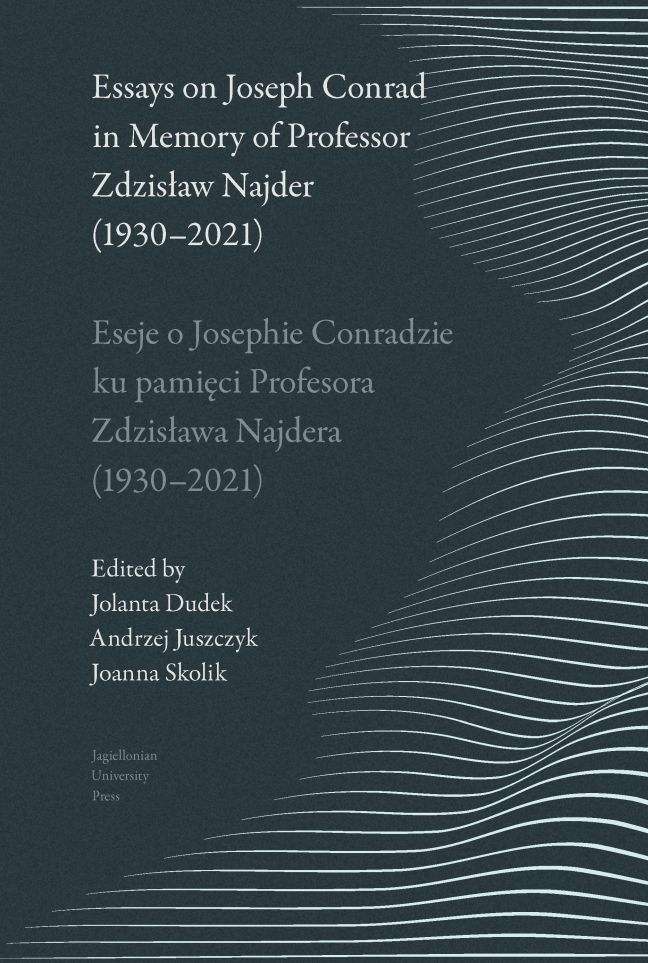Book contents
- Frontmatter
- Contents
- Part I
- Part II
- Bibliografia publikacji i audycji medialnych Zdzisława Najdera o Josephie Conradzie / A Bibliography of Zdzisław Najder's Publications and Media Programmes on Joseph Conrad
- Notes on Contributors / Noty o autorach
- Author Index / Indeks nazwisk
- Miscellaneous Endmatter
Notes on Professor Najder
Published online by Cambridge University Press: 01 March 2024
- Frontmatter
- Contents
- Part I
- Part II
- Bibliografia publikacji i audycji medialnych Zdzisława Najdera o Josephie Conradzie / A Bibliography of Zdzisław Najder's Publications and Media Programmes on Joseph Conrad
- Notes on Contributors / Noty o autorach
- Author Index / Indeks nazwisk
- Miscellaneous Endmatter
Summary
In 1972, Dr Najder invited me to attend a conference on Joseph Conrad to be held in Warsaw, Kraków and Gdańsk. I accepted the invitation with alacrity. I was an admirer of Conrad's Polish Background: Letters to and from Polish Friends (London: Oxford University Press, 1964), which he had edited with such scholarly skill. My edition, Joseph Conrad's Letters to R. B. Cunninghame Graham, had been published by Cambridge University Press in 1969, and this had prompted the invitation.
I was 35, and this was the first time I had been invited to a conference abroad. The Polish organisers were remarkably hospitable, paying for the journey to Poland and for all the travel, meals and accommodation within Poland. Spanning nine days, the conference, under the aegis of the Neophilological Committee of the Polish Academy of Arts and Sciences, was lavishly planned and executed; and I remain grateful to the Polish people whose taxed labours paid for it. Dr Najder himself greeted the British guests on our arrival in Warsaw: he was a handsome, stylish figure, with his overcoat worn loosely over his shoulders in a style I associate with Polish officers.
I was delighted to find that other guests at the conference included some famous figures: among them, Borys Conrad, the author's elder son, to whom The Shadow-Line is dedicated, Ian Watt, Thomas Moser, Gustav Morf, René Rapin and Norman Sherry. I was also introduced to Edward Said, Andrew Busza, Hans van Marle, Mario Curreli, Przemysław Mroczkowski, Róża Jabłkowska and Barbara Kocówna, among others. The conference was “gate-crashed” by some people who had attended a Conradiana conference in London and decided to invite themselves to the Polish event: these included Edward Bojarski, Eloise Knapp Hay and Juliet McLauchlan. The Polish hosts, at first understandably disconcerted, gallantly accepted these newcomers. Dr Najder I found to be urbane, keenly intelligent and observant, and genially tolerant of my unfamiliarity with the ways of conferences. As a result of that Polish conference, the Joseph Conrad Society (UK), with its journal The Conradian, was founded in 1973.
Later in his career, Dr Najder was sentenced to death in absentia by the régime of General Jaruzelski, so he worked in the West (and during that time accepted my invitation to give a guest lecture at my university, the University of Sussex).
- Type
- Chapter
- Information
- Publisher: Jagiellonian University PressPrint publication year: 2023



